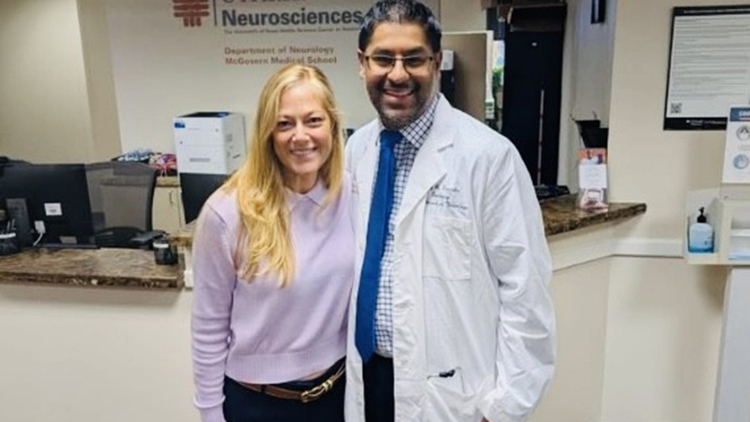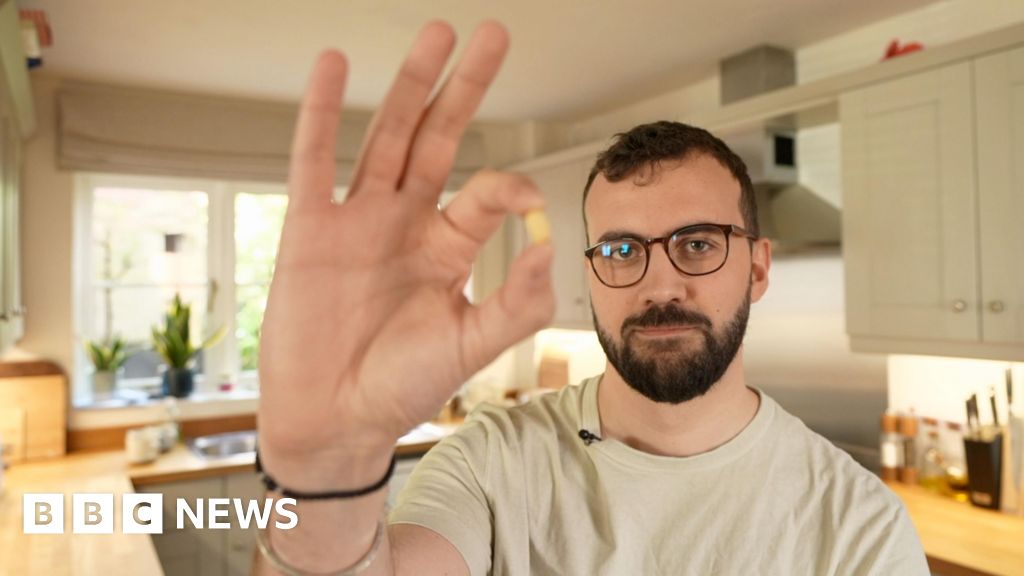HOUSTON — Right now nearly three million Americans are living with Epilepsy, and that number includes some right here in Houston. This Saturday, the Houston Texas Epilepsy Walk will be held at the Houston Zoo and our reporter Ugochi Iloka is helping to emcee for the fourth year in a row. Laura Snyder never thought in a million years, she’d have to learn how to walk and talk again.
In August of 2016 while living in Chicago, Laura’s life completely changed, and the first sign was when her speech slurred during a phone call with her mom. “They tested me for lupus,” she said. “They tried multiple sclerosis.

They did not know what was happening.” Eventually they found out it was Epilepsy and she could no longer do things like walk or drive on her own or swim solo. “ “My husband is extremely supportive,” Snyder said.
“And he will pick me up from work, drop me off. As someone who lived a full life, I went skydiving. I played soccer in college.
I was an athlete to have that kind of life. And now I must let people know. I don't know what I can and can't do.
” She moved back to Houston and started working with Dr. Jay Gavvaala, an associate professor at UTHealth Houston’s neurology department. “Epilepsy is just an abnormal electrical activity in the brain that is occurring and producing a whole variety of clinical symptoms,” Dr.
Gavvaala said. Snyder said Dr. Gavvaala studied under the doctor who was originally treating her in Chicago and found out her symptoms were nothing like the stereotypes often linked to epilepsy.
“Grand mal is what you see on TV or in a movie where they're falling on the floor and they're shaking,” she said. “And that's when you tell someone, ‘I have epilepsy,’ that's what they imagine. And their eyes get big and scared.
” “A lot of people have a conception of seizures, just being thrashing around,” Dr. Gavvaala said. “And that's all they think a seizure is.
And when I tell them that, they're episodes where they stop speaking for a minute or two or stare off into space as a seizure, then they're very struck by that. There is a small subset of individuals who have seizures where flashing lights can result in a seizure, but the vast majority in my population don't tend to have that as a trigger.” He said many times, epilepsy can go undiagnosed due to symptoms going undetected.
“ There can be subtle symptoms such as staring off into space, anxiety attacks, twitching of different parts of the body, language difficulties. And so that is a big part of why people don't get diagnosed early and recognize that they're actually having seizures,” Dr. Gavvaala said.
Both Snyder and Dr. Gavvaala now work with the Epilepsy Foundation. “Even a small donation helps a family that can send their child to go to a camp or clinic to get help or understanding on what they're going through,” Snyder said.
Laura is on the Texas Epilepsy Foundation board and Dr. Gavvaala is the chairperson of the professional advisory board. “The Epilepsy Foundation has been a natural ally for me in my clinical care.
So, they are helpful in terms of spreading community knowledge and awareness of epilepsy,” Dr. Gavvaala said. When people sign up for The Texas Epilepsy Walk-Houston, they are supporting Epilepsy research, treatment plans and giving hope to survivors like Laura.
You can watch our panel discussion on Epilepsy , streaming now on our KHOU 11 + app starting at 8a.m. Wednesday and catch the replay later.
.
Health

Laura Snyder's first sign something was wrong was slurred speech. Her diagnosis changed her life.

Laura Snyder's life completely changed in 2016. She's now helping others diagnosed with Epilepsy.













